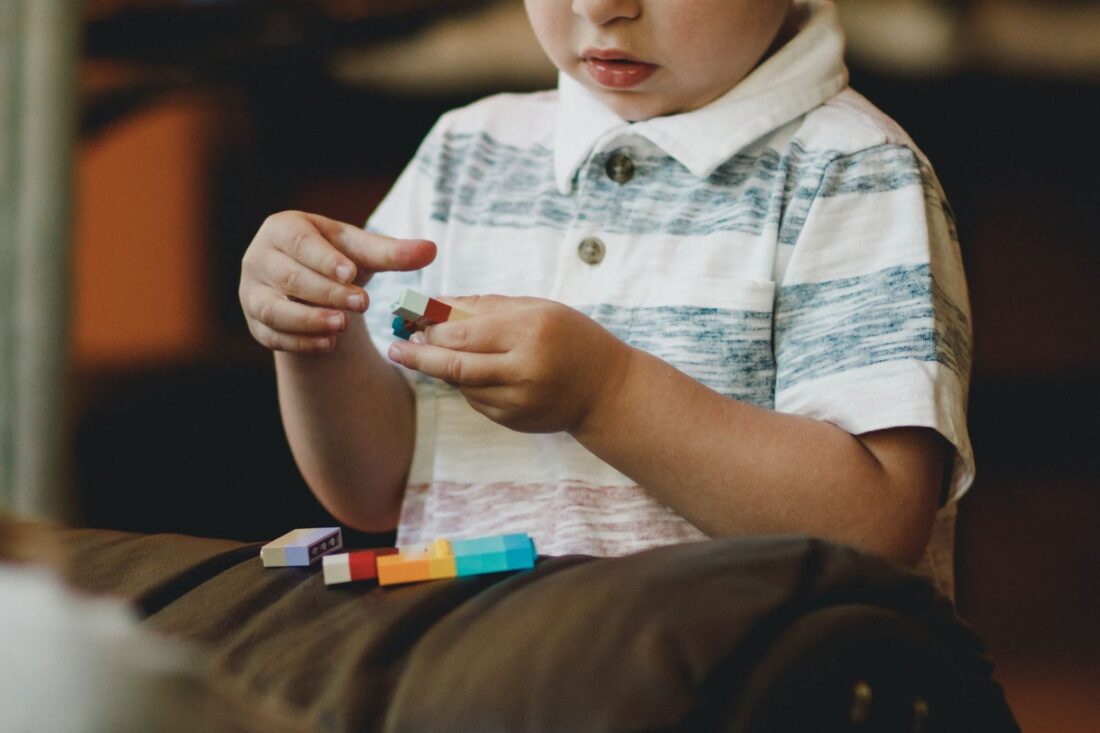It can sometimes be difficult to spot signs of autism in young children. Parents often think some behaviors are simply associated with growing up. At the same time, the sooner autism can be diagnosed, the sooner you can begin setting your child down a path of being able to handle and grow with it.

https://unsplash.com/photos/ecRuhwPIW7c
Limited display of emotions
One of the first signs to look out for from an early age is your child barely ever or never displaying outward emotions. A lack of laughing, crying, smiling, or engaging with you emotionally can clearly indicate autism.
Disconnected
Whether you speak to a parent with an autistic child or an expert from an autism services center, one of the most common signs they will speak about is the child being disconnected. This symptom can come in many forms, but the most common is your child’s not understanding their connection to those around them.
They cannot pick up on contextual social cues and will react to a smile just as they would react to a sad face or frown. This doesn’t mean your child is emotionless; the autistic brain simply processes emotional responses differently.
Apparent lack of empathy
Building on the previous symptom, a lack of emotion and emotional response can often come across as lacking empathy. Once again, your child does not lack emotion or the ability to feel empathetic; instead, they are processing these emotions differently.
Indifferent to interactions
Children of all ages will happily join in on games and react to those around them, with babies even wanting to grasp for or hold their parent’s fingers or hands. This isn’t the case in autistic children, as they tend not to engage or avoid most human interaction altogether.
As autistic children grow up, this symptom becomes more pronounced as they will happily — and very comfortably — play games independently and be quite content with their own company, seeming to prefer it to the company of others.
https://unsplash.com/photos/oUgZVBaGcEQ
Exaggerated emotional responses
While less common, another sign of autism is emotional outbursts responding to what may look like mundane activities and normal situations. This can range from screaming or crying when getting dressed to becoming physically aggressive for seemingly no reason.
Slow language development
A more obvious — and fairly common sign — of autism in children is that of slow language development. From one year old onwards, children begin to make noises and babble in a way that will form the basics of the language they will eventually learn to speak. By three years old, they should know a few words and begin to understand forming sentences.
An easy rule to follow is that by 18 months, your child should know a handful of words, and by two, they should be able to make two or three-word sentences. Many autistic children are slow to develop language skills, with some remaining completely non-verbal for many years past what is considered normal in children. If you’ve noticed early signs and symptoms of autism in your child, it’s important to seek support and information. Consider exploring the benefits of virtual ABA therapy as a valuable resource for assistance in understanding and managing autism. You can find additional guidance on this support platform.
Increase in non-verbal communication
Once again, the above symptom and this one are connected. Due to autistic children struggling with language development, they sometimes choose to use other forms of non-verbal communication.
They will tend to use hand gestures, or drawings, to communicate what they want. Another symptom is a regression in language. This means your child will lose parts of their verbal vocabulary or could struggle to add to it.
Repetitive behaviors & actions
Another common sign of autism is repeating behaviors and actions, almost to a level of obsession. This can vary greatly but can include rocking back and forth, repeating the same word, arranging and rearranging the same toys or objects, and other repetitive actions.
This is widely regarded as one of the most common early signs of autism and one that parents are encouraged to be on the lookout for.
Difficulties adapting to change
While not so prevalent in much younger children, older toddlers and children with autism will tend to have extreme reactions to change. People and children with autism tend to impose very strict regimes and schedules on themselves and their lives, and any deviation from this can upset them enormously.
Autistic children, as they get older, can become obsessed with time and things that happen at certain times. Some will, for example, refuse to eat lunch if it isn’t at the “regular” time or refuse a visit to the park on a day they have decided is not a “park day” in their schedule.
https://unsplash.com/photos/O8eo2BC1SOI
Autism in girls vs. boys
Studies show a few big differences between girls and boys regarding how autism is “expressed.” This can often lead to a lack of diagnosis or misdiagnosis in girls with autism.
It is important to note that the symptoms listed above can be less obvious in girls, but that doesn’t mean they aren’t there. A common symptom in girls with autism is that they are often outwardly calm and more withdrawn, which can also be confused as a personality trait rather than a sign of autism.
Conclusion
Parents should use the above list as a guide to keep in mind while watching their children grow. There is nothing scary about autism, but you will be doing your child and yourself a massive favor by being able to diagnose it early and start your journey toward living with it rather than allowing them to spend their lives fighting against it.
There is nothing scary about autism, but you will be doing your child and yourself a massive favor by being able to diagnose it early and start your at-home autism therapy journey toward living with it rather than allowing them to spend their lives fighting against it.




